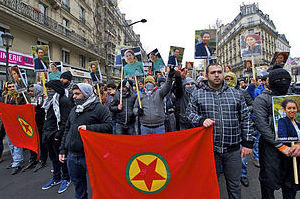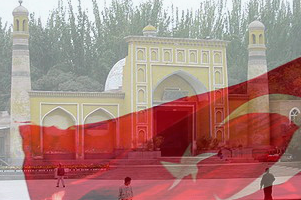What the Columnists Say
Etyen Mahçupyan in Akşam writes that the cease-fire ended because PKK started to seek independence in Rojawa, and because Turkey did not want to have a PKK state at its border. “PKK has shot itself in the foot,” he writes. Metin Münir on the t24 news site finds it incredible that PKK chose to respond to Erdoğan’s restart of the war in what he describes as the most stupid way possible, by returning to terrorism. Orhan Bursalı in Cumhuriyet writes that PKK is laying the ground for secession from Turkey. Kemal Öztürk in Yeni Şafak warns the AKP that the party is losing the public relation battle to PKK among the Kurds, and that yet another electoral disaster is looming. Şahin Alpay in Zaman writes that even though Erdoğan is the chief responsible for why calm and stability continue to elude Turkey, the fundamental reasons for this are inscribed in the genetic code of the republic.

Alpay: authoritarianism is inscribed in the genetic code of our republic
Şahin Alpay in Zaman writes that Turkey has certainly entered a period of instability that is not going to be short-lived. No doubt, President Erdoğan is the chief responsible for this. Yet this fact should not lead us to overlook the main reasons for why calm and stability continue to elude Turkey. A multicultural country like Turkey, with its multiple identities, can only become calm and stable when freedom and a pluralistic democracy has been put in place. Unfortunately, the genetic code of the republic does not allow for this. Erdoğan is faithful to the founding tradition of the republic when he views every kind of opposition as treason and when he does not tolerate that civil society becomes stronger. The second founding stipulation of the republic was that a modern society could only be constructed if the whole of society was made Muslim and if Islam was controlled by the state through the State Directorate of Religious Affairs. Indeed, the AKP, which stands for Turkish nationalism mixed with a sauce of Islamism, does not recognize the freedom of belief and continues to impose the religion of the State Directorate of Religious Affairs.
Erdoğan’s War: The Causes and Consequences of the Upsurge in Kurdish Violence
By Gareth Jenkins (vol. 8, no. 15 of the Turkey Analyst)
In recent weeks, Turkey has been wracked by an escalation in Kurdish-related violence. Not only could the upsurge have been prevented but there are fears that the worst may yet be to come. The fear is that President Recep Tayyip Erdoğan may order an even harsher crackdown over the weeks ahead and that, with its rural units depleted by deployments to Iraq and Syria, the PKK may increasingly respond by staging attacks, including more suicide car bombings, in the cities.

Turkey and China: Merging Realpolitik with Idealism
By Hay Eytan Cohen Yanarocak (vol. 8, no. 15 of the Turkey Analyst)
Despite the importance and improvement of multi-dimensional Turkish-Chinese relations, Turkish decision makers have had difficulties reconciling their Pan-Islamic ideological rhetoric and the demands of realpolitik. While Ankara recognizes the need to form good relations with China, its self-assigned role as the protector of “oppressed Muslims” has, so far, trapped Turkey between realpolitik and the purism of ideology. Having acknowledged this clash, President Recep Tayyip Erdoğan has moved to neutralize the discord that has existed between Turkey’s national interests and its Pan-Islamic ideological rhetoric. Erdoğan’s new China strategy promises to pave the way for solid, stable relations between Turkey and China.

Turkey Is Not Going to Be “Normalized” Under the AKP’s leadership
By Toni Alaranta (vol. 8, no. 14 of the Turkey Analyst)
There is widespread expectation that “normalization” and democratic consolidation will follow the June 7 election, which deprived the ruling Justice and Development Party (AKP) of its majority. The talk about “normalization” and President Recep Tayyip Erdoğan becoming “isolated” presupposes that Turkey’s democratic travails emanate exclusively from Erdoğan’s power hunger, and that once this factor is eliminated, the AKP will once again become the “normalizing force” it allegedly was previously. However, “normalization” would mean abandoning not only Erdoğan but the very political narrative disseminated by the AKP during its years in power, and thus the mission of the party.



